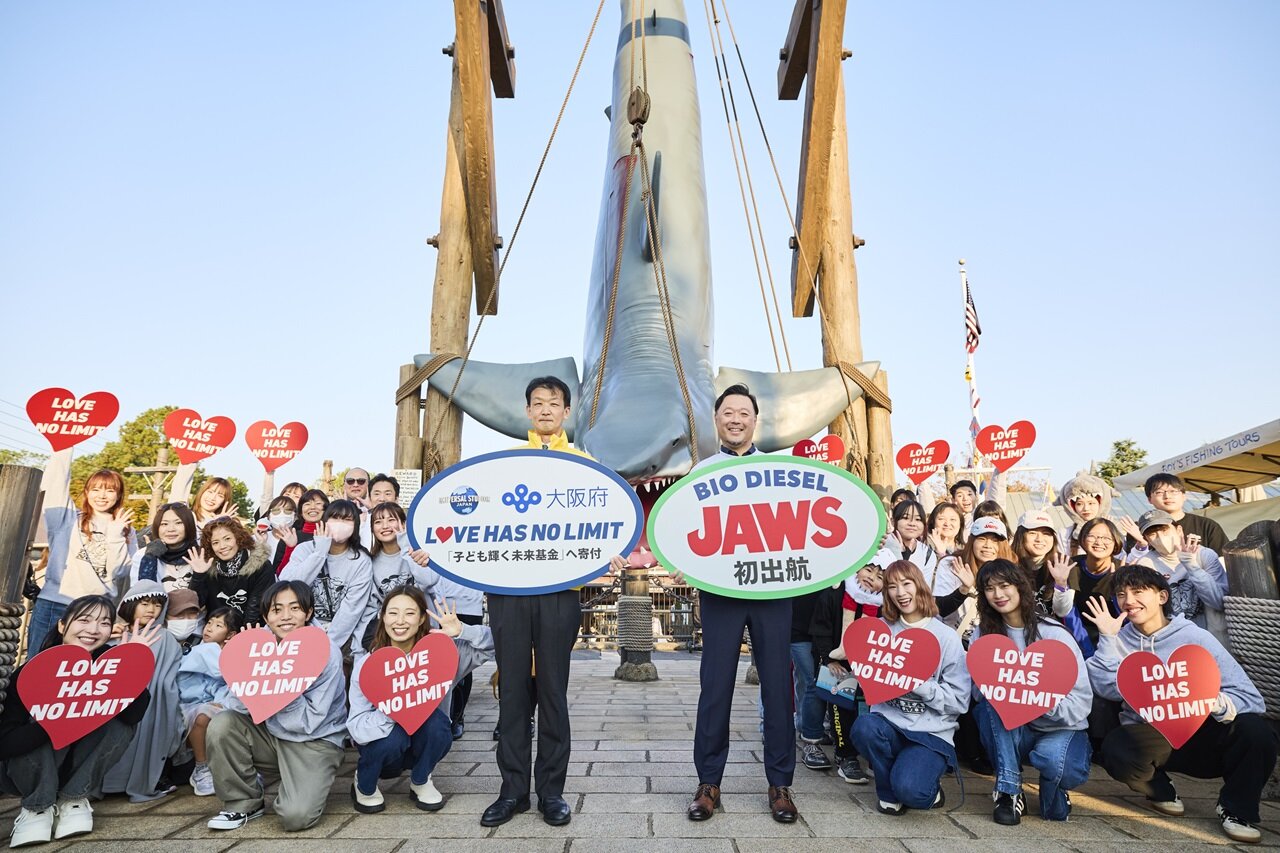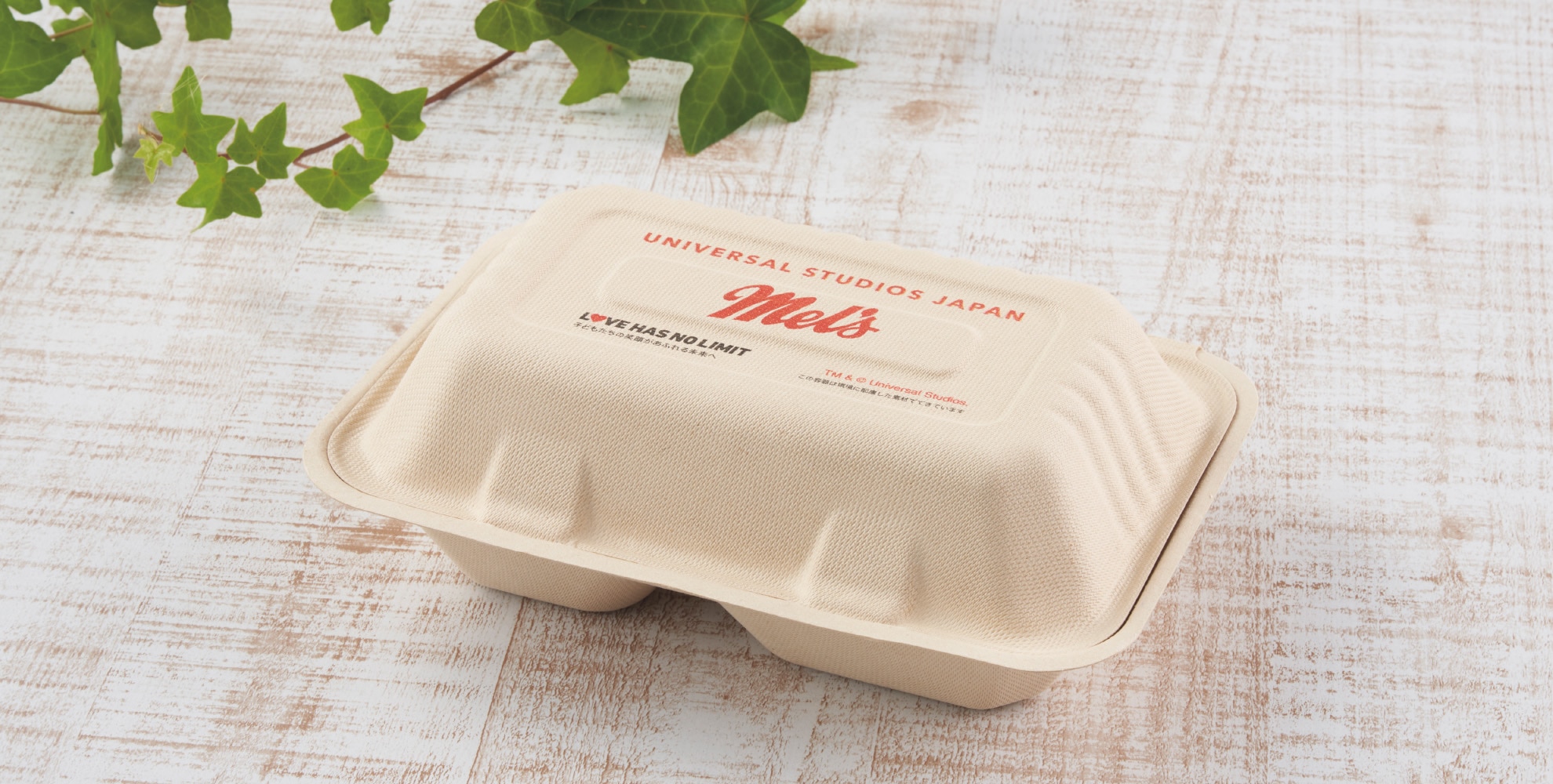
A Park First! The Always-Popular “JAWS” Boat Tour Now Runs on Biofuel
Promoting a Recycling-Oriented Society!
- Feb. 20th, 2025 UP
-
Starting November 22, 2024, Universal Studios Japan began using biodiesel fuel blended with diesel—produced in part from waste cooking oil used in the Park’s restaurants—to power the boat engines on the JAWS attraction. This initiative aligns with our commitment to “creating a future full of children’s smiles” under the new CSR slogan “LOVE HAS NO LIMIT.”
The JAWS attraction, a thrilling boat tour inspired by the 1975 Universal Pictures and Amblin Entertainment film about a giant shark attack, is the first ride in the Park to operate on biodiesel-blended fuel.
Recycling-Oriented Society Promotion Project: Use of Biodiesel Fuel
The 28 restaurants within the Park generate approximately 189 tons of used cooking oil each year. During refining, 10% of impurities are removed, and 10% of the glycerin content from the distillation process is recycled into detergent. Ultimately, around 80% of the waste oil is converted into biodiesel fuel.
The biodiesel fuel is then blended with diesel, creating a 5% biodiesel fuel mix, which is used to power the JAWS boat tour attraction.

What is the Recycling-Oriented Society Promotion Project?
The Recycling-Oriented Society Promotion Project is a Universal Studios Japan initiative addressing environmental issues under the CSR slogan “LOVE HAS NO LIMIT.” As a theme park that operates like a small-scale society, USJ independently promotes this project to contribute to the realization of a recycling-oriented society—a society that minimizes environmental impact by making effective use of limited resources, even within the Park.
Other Initiatives in the Recycling-Oriented Society Promotion Project
• Use of Food Waste as Liquid Fertilizer
To reduce food waste generated during Park food preparation, a food waste processor was installed to crush and dehydrate waste, significantly reducing its volume. Beyond waste reduction, the Park is also exploring resource efficiency by converting food waste into liquid fertilizer, which is currently being tested on plants in employee areas. Looking ahead, the goal is to use this fertilizer for Park greenery and share it with partner farmers.
• Upcycled Bags from Construction Sheets
During construction, the Park uses image sheets to conceal scaffolding and maintain an immersive atmosphere. Rather than discarding these sheets after use, they are repurposed into upcycled bags, with some distributed to employees, ensuring materials are reused effectively.




